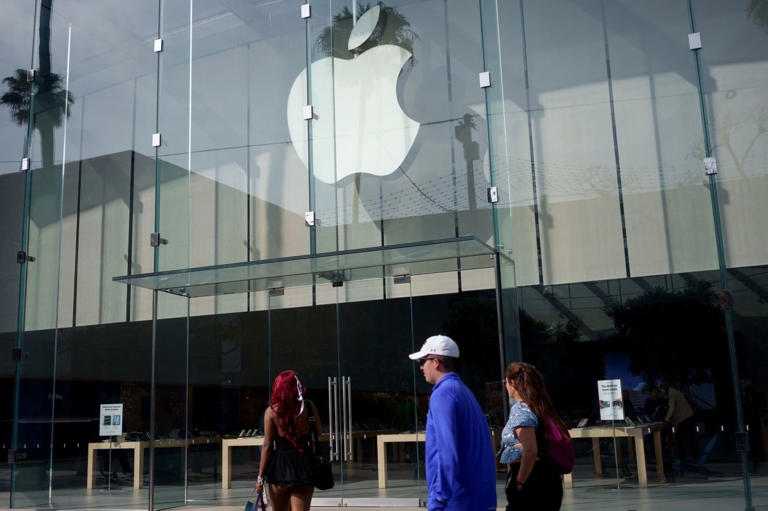The sway of Big Tech stocks over the market isn’t merely about their performance but also their impact on investor sentiment regarding the Federal Reserve’s interest rate policies. While the S&P 500, a value-weighted index heavily influenced by these tech behemoths, appears less susceptible to fluctuations in interest rate expectations due to the substantial cash reserves held by these companies, a deeper dive into individual stocks within the index paints a more nuanced picture.
In the midst of rising bond yields, the average stock within the S&P 500 is exhibiting heightened sensitivity to changes in interest rates, marking a notable departure from historical trends. This heightened sensitivity underscores a significant divergence between the broader market index and its constituent components, particularly those smaller companies that lack the robust cash reserves enjoyed by their larger counterparts.
The valuation discrepancy between Big Tech stocks and the broader market is equally conspicuous, with the median stock in the S&P trading at a notably lower multiple of forward earnings compared to the Big Tech-dominated index. Despite this valuation gap, both segments of the market continue to command relatively high multiples by historical standards, suggesting ongoing investor optimism despite concerns about overvaluation.
The market dynamics observed in 2024 represent a departure from the trends witnessed in 2022. Whereas Big Tech stocks faced considerable headwinds amid apprehensions about overvaluation and the specter of rising interest rates, they have staged a remarkable recovery in 2024, buoyed by renewed enthusiasm surrounding artificial intelligence and the Federal Reserve’s more gradual approach to monetary policy normalization.
Investor apprehensions about the potential persistence of higher interest rates have prompted a flight to safety, with investors favoring larger, more cash-rich companies perceived as better positioned to weather economic uncertainties. Meanwhile, smaller firms face mounting pressure amid lingering concerns about economic growth and profitability.
However, if the Federal Reserve were to pivot towards a more accommodative stance and consider rate cuts in response to evolving economic conditions, the market dynamics may shift in favor of smaller companies. This could present compelling opportunities for investors seeking bargains in undervalued stocks, particularly within the smaller segments of the market.
In essence, the market’s response to fluctuations in interest rate expectations underscores the outsized influence of Big Tech stocks on investor sentiment and portfolio allocation decisions. As market conditions continue to evolve, prudent risk management and diversification strategies remain paramount for investors navigating the complexities of today’s investment landscape.
